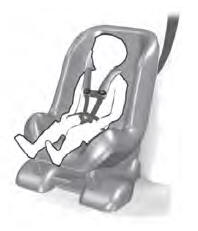Lincoln Aviator: Lane Keeping System / Description and Operation - Lane Keeping System - Overview
Overview
The Lane Keeping System (LKS) has 2 functions, lane keeping aid and lane keeping alert. The Lane Keeping System (LKS) utilizes the camera located in the IPMA to detect and track the road lane markings. The lane keeping alert detects unintentional drifting toward the outside of the lane and alerts the driver through steering wheel vibrations and a visual alert in the IPC message center. The lane keeping aid assists the driver by automatically providing steering torque to help the driver keep the vehicle in the lane.
 Description and Operation - Lane Keeping System - System Operation and Component Description
Description and Operation - Lane Keeping System - System Operation and Component Description
System Operation
Lane Keeping Alert and Lane Keeping Aid
Item
Description
1
Lane Keeping System Switch
2
IPMA
3
GWM
4
Camera Windshield Defrost Heater
5
RCM
6
SCCM
7
PCM
8
IPC
9
TRM
10
BCM
11
PSCM
12
with active cruise control
13
CCM
14
Windshield
Network Message Chart
Module Network Input Messages - IPMA
Broadcast Message
Originating Module
Message Purpose
Ambient air temperature filtered
PCM
Used to control the camera windshield defrost heater operation...
Other information:
Lincoln Aviator 2020-2026 Owners Manual: Automatic Return to Park
Note: This feature does not operate when your vehicle is in Stay in Neutral mode or neutral tow. The transmission returns to park (P) if any of the following occur: You switch the ignition off. You do not have your seatbelt fastened and you open the driver door...
Lincoln Aviator 2020-2026 Owners Manual: Owner Checks and Services
M..
Categories
- Manuals Home
- Lincoln Aviator Owners Manual
- Lincoln Aviator Service Manual
- Drive Modes
- Interior Lamps
- Changing the Front Wiper Blades - Vehicles With: Heated Wiper Blades
- New on site
- Most important about car
Child Seats

Use a child restraint (sometimes called an infant carrier, convertible seat, or toddler seat) for infants, toddlers and children weighing 40 lb (18 kg) or less (generally four-years-old or younger).
Using Lap and Shoulder Belts
WARNING: Do not place a rearward facing child restraint in front of an active airbag. Failure to follow this instruction could result in personal injury or death.

